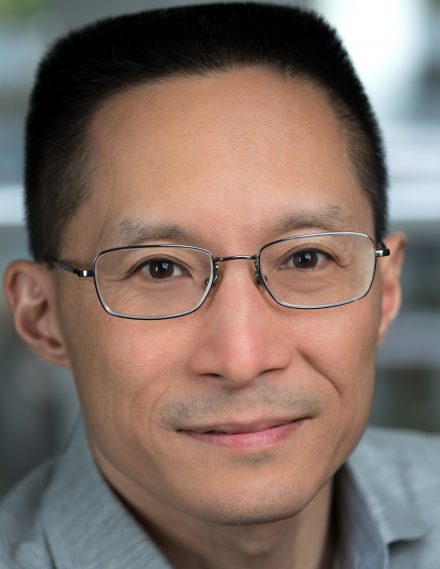The co-founder and CEO of Citizen University gave a virtual lecture to the Elon community on Tuesday, Feb. 8.
Eric Liu has spent his career as a strong advocate for engaged citizenship. It’s evident in his role as the co-founder and CEO of Citizen University, a nonprofit platform to increase activation, communication and education to create more well-rounded citizens.

He’s noticed that many feel that democracy is in a stage of disintegration, but Liu sees it as in a state of reawaking.
“I do believe we are at the cusp of a fourth founding of the United States, a new push to ensure that this republic actually delivers on the promise of our ideals,” Liu said in his webinar to the Elon community on Tuesday, Feb. 8 as a part of the university’s Speaker Series.
Throughout America’s history, Liu said, there have been significant moments that distinguish a rebirth of the nation. Liu named the first founding as the actual founding of America in 1776, the second founding as the Reconstruction era following the Civil War that saw the ratification of several amendments and the third founding being the Civil Rights Movement in the 1950s and 1960s.
These moments were collective attempts to make this county live up to its creed and ideals, and that is what Liu said is happening today.
Liu was born in 1968, amid one of those founding, to Chinese immigrants who fled mainland China during the war and revolution of the late 1950s to Taiwan and eventually came to the United States in the early 1960s. He was born just outside of Poughkeepsie, New York, during a time when IBM was a major employer in the area.
“My parents began a life that in some ways is very difficult to imagine now,” he said. “I grew up in a suburb of New York in a company town at the peak of American power. Public education was strong and abundant because it was supported by both the company and the taxpayers in the community. And there was a strong sense of hope and possibility growing up in that environment.”
A similar sense of optimism is not shared today by the current generation of youth, which has less belief in the effectiveness of democracy than ever before.
“Who can blame you? Your whole lives, democracy in the United States has not really delivered for all the people. There’s been this emerging power across the ocean in China that is authoritarian and completely stifling people’s liberties. So, I understand why people in your generation might have a diminishment of faith,” Liu said about today’s youth.
To restore that confidence, we as a society have to a “civic leap of faith,” Liu said, and we do so by focusing on “the what, the why and the how.”
The “what,” Liu explained, is gaining command of the knowledge of our history and the core arguments of our history so that we can engage in those arguments. Part of what makes a democracy flourish is civil discourse, and the best way to have a meaningful dialogue is to be informed about the plentiful history of this country.
“You have a particular obligation to understand this history … and to be an ambassador to the rest of the United States,” Liu said.
The “why” relates to our ability to be curious and empathic so that we can understand what the emotional and psychological drivers are of other people’s worldviews, Liu said. “You’re never going to convince somebody through rational argument alone. But you might invite them to open their minds,” Liu said.
“How” is a question of how exactly can we sustain a republic that is worth keeping. The answer to that is by maintaining a habit of civic exercise.
“Those of us who are involved in service know that that ethic of service before self, that ethic of contribution before consumption isn’t automatic, it’s not self-executing or even self-evident to many people. It has to be cultivated, it has to be nurtured, reaffirmed, reinforced and supported by practice, ritual, joining, activity, play [and] joy,” Liu said. “That spirit of service formed and informed the breadth of my career.”
Although held virtually, Liu mentioned the watch party event for his talk that was held the Moseley Center on Tuesday night. “I just want to welcome the people convening to be able to experience this webinar, but then also those who are in person and able to discuss it with one another,” Liu said.
“I just love that spirit of engagement, which I know is a deep part of the Elon culture,” Liu said. “That approach to learning by talking it through, learning by being in the company with whom you have a human relationship and not some kind of distant lecture to audience relationship.”
America is on the cusp of attempting to create the world’s first “mass multiracial democratic republic,” according to Liu. Other nations have achieved one of those distinctions but not all at the same time.
It remains to be seen whether it is possible, but Liu has faith that it will come to fruition.
“What a great thing it is that we are alive and aware right now that you who are young enough … at this moment of decision when we’re going to decide and determine can it be done. I believe it can.”


